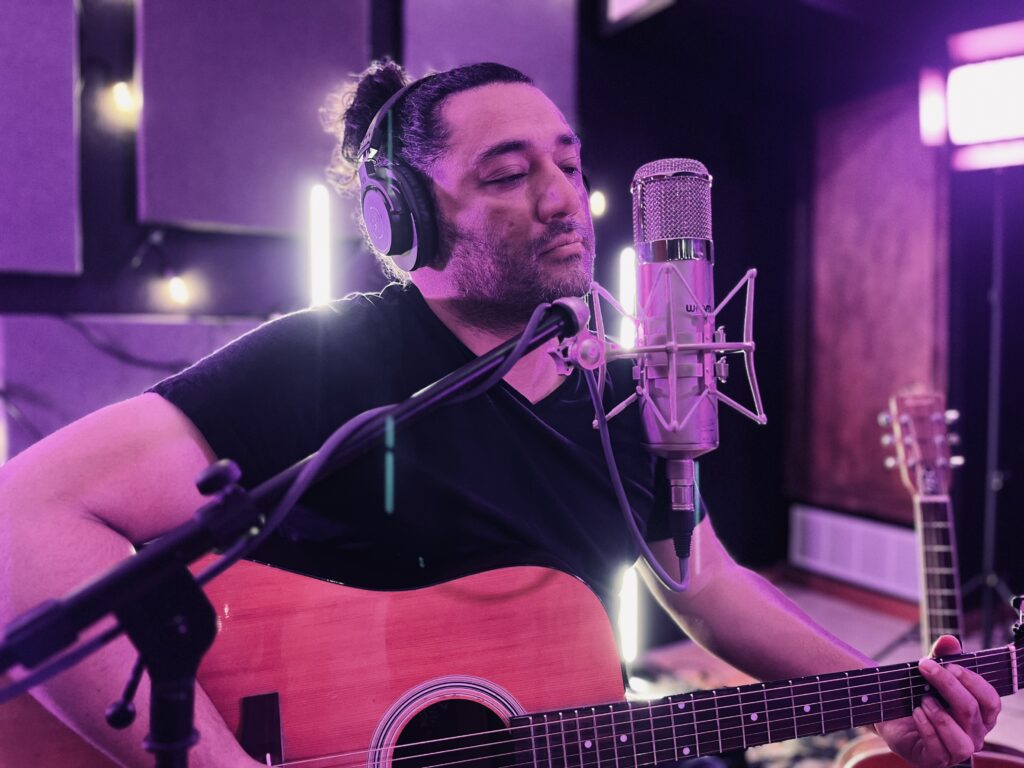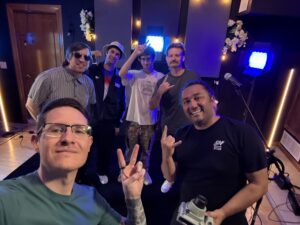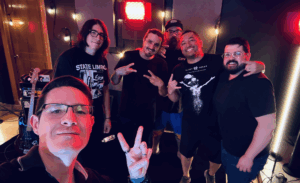Every now and then, I like to scroll through the Facebook recording and mixing groups just to see what’s “new” in the audio world. Most of the time, it’s just people bitching back and forth about analog vs. digital or posting the usual “back in my day” nonsense. Honestly, it’s pretty much useless for any new, aspiring audio engineers trying to get into the game. You can watch them ask totally valid questions, only to get buried under a pile of irrelevant hot takes that don’t even come close to answering what they asked in the first place.
One topic I see pop up over and over is: “How do I get my vocals to sound professional?” or “How do I mix vocals?”
Speaking from personal experience, vocals are hands down the hardest part of any recording or mix. They carry so much weight compared to the rest of the song and are usually the make-or-break moment for new listeners. What most new engineers don’t realize, though, is that good vocals start way before you even hit record.
Here’s a scenario every beginner is going to run into, so brace yourself. You go to a local show. A new band comes out of nowhere and absolutely kills it on stage. You hang with them afterward, tell them you’ve got your own studio, and offer to record a song for free. They say yes and boom, you’re officially booked at your new studio.
They show up, you knock out drums, bass, and guitars, and you schedule vocals for the next day. The big day comes. You’ve got your fanciest mic set up, the band is hyped, the singer steps up, you hit record, and (boom) they sound terrible. Everyone starts looking at each other in shock and disappointment. I’ve seen it happen a million times over the years at Let Down Studio. So…what now?
Well, in keeping with our tradition of writing brutally honest blogs about the studio life, here’s the deal. We’ve learned a lot about the difference between live vocals and studio vocals. Hopefully, these tips will give you some insight into what the singer might need, what they’re going through, and just how insanely important vocals are in the recording process.
Fuckin nerves man!
I don’t care what anyone says, being the vocalist in a band is the hardest damn job to fill. The brutal truth is, no matter how good your instrumentals are, if the singer sucks, you’re screwed. Being the vocalist comes with a heavy burden to bear. They’re not just carrying the weight of the band’s reputation, they usually end up being the face of the band too. As a producer or engineer, never forget that!
When it comes to vocal tracking, take your time. Let the singer get settled in and warm up, even if they swear they warmed up in the car (they didn’t). They’re nervous, no matter what they tell you. If they want to track alone, let them. If they want the lights dim or completely off, do it. Hand them a water. Do whatever it takes to make them comfortable, because the more relaxed they are, the better their takes will be.
And for the love of God, don’t ever say, “You sounded different live.” That will kill their confidence instantly. Also, talk to the rest of the band beforehand and make it clear that any negativity or fucked up comments won’t fly in your studio. This is where you take charge. Protect the vibe, protect the singer, and you’ll get the performances you’re after.
You can’t hide your flaws (Sorry)
This concept completely wrecked me when I first started recording with my own bands in studios. I walked in thinking I was hot shit, then immediately got humbled the second I started tracking guitar riffs and folded like a lawn chair the moment all eyes were on me. The studio has a way of exposing who you really are as a musician. There’s no hiding from it. Now imagine how brutal that spotlight is for a singer, where every single sound that comes out of their mouth is being judged in real time. Like I said before, it’s often a rude awakening for bands when they suddenly realize they’ve got a shitty singer.
Live shows are a completely different beast. It’s loud as hell, the kick drum is shaking the walls, and the guitars are actively trying to kill your eardrums. In that chaos, a mediocre singer can skate by because no one can actually hear what they’re singing anyway. But in the studio? There’s nothing but dead silence, and in that silence, every flaw in a vocal performance sticks out. As a new audio engineer or producer, you have to get used to this. You also have to always be prepared to keep the session going.
Always throw out words of encouragement. Be gentle with criticism and learn how to actually communicate like a human being. Take breaks often. And most importantly, track in sections. Singers burn through their breath fast, and trying to nail an entire song in one go is brutal even for seasoned pros. Don’t run them into the ground just to say you got a “full take.”
Jumpin around aint gonna save you bubba!
There’s nothing more captivating than a live performance full of movement and energy, especially from the singer. We’ve all watched our favorite front person absolutely own the stage and take the entire venue to another level. This is usually where shitty singers somehow manage to shine. But live performances are a completely different beast compared to the calm, controlled environment of a studio. Studios are meant to be quiet, focused spaces. Places where musicians can shut out the world and lock in on their craft. Here at Let Down, we go out of our way to help set that vibe for singers, whether it’s dimming the lights, rearranging furniture, or giving them space to breathe. Mood matters.
Singers can’t be bouncing around and putting on a show in the booth. There’s no hiding behind stage antics in the studio. Microphones, especially the expensive ones, are insanely sensitive. They’ll pick up everything. A singer just breathing, a subtle bump to the mic stand, hell, even the damn air conditioner humming in the background. We’ve had dogs barking and cars driving by end up on vocal tracks before.
The point is, recording vocals is a delicate operation. Too much movement can ruin an otherwise solid performance. Your onstage persona won’t save you here. The mic will expose the truth, whether you like it or not.
Vocal Studio Hacks: How to Get the Best Takes Every Time (Old Guy Advice!)
- Create a comfortable environment – do what it takes to make them feel at home
- Phrase criticism positively – Don’t be a dick!
- Offer multiple mics (if you can) – Every voice is different and will respond better to certain mics
- Let the band know that they will improve – if they stick with it
- Offer water – cold or warm
- No smoking! – Smoking does not improve anything
- Limit booze – don’t let them get too fucked up
- Allow them to hold the mic (dynamic mics only) – they just can’t move around too much
- Constant positive reinforcement is a must – lead the room by example
Final Warning! (Just Kidding)
At the end of the day, tracking vocals will test every ounce of your patience as an engineer. It’s messy, stressful, and full of uncomfortable truths but it’s also where the magic happens, if you handle it right. Your job is to protect the vibe, keep the singer’s confidence from imploding, and steer the ship when everyone else starts panicking. The studio has zero mercy! So be prepared, be calm, and take control. If you can’t do that, you’ve got no business running a session because the mic doesn’t lie, and it sure as hell won’t babysit your chaos for you.







